
SCARS Institute’s Encyclopedia of Scams™ Published Continuously for 25 Years

You Knew It Was A Scam All The Time Right?
Have you ever noticed that events seem more predictable after they have already happened? The results of an election, for example, often seem more obvious after the tallies have been counted. They say that hindsight is 20/20. In other words, things always seem more obvious and predictable after they have already happened.
In psychology, this is what is referred to as the “Hindsight Bias”, and it can have a major impact on not only your beliefs but also on your behaviors.
It can have a profound impact on victims as they struggle to make good decisions after the scam ends!
Let’s take a closer look at how the hindsight bias works and how it might influence some of the beliefs you hold as well as the decisions you make on a day-to-day basis.
Why Bother With The Psychology Of Your Brain?
Why do we spend time trying to help scam victims understand how their brains work? Specifically, work against them? That’s a good question!
The reasons are fairly simple.
First, you cannot recover from something unless you understand what it was that happened. Simply saying you were scammed is too simplistic. There were reasons why it happened and understanding those will help you reduce shame, blame, and guilt. But also understanding why helps you change your behaviors to prevent it in the future.
But another reason is that the scam did not happen in a vacuum. Your mind allowed it to happen, but even after it is over, that same mind is making all kinds of new choices and decisions that can be just as flawed.
By really understanding some of these foundational cognitive processes you may be able to alter your mental gears to be safer, sounder, and smarter about what you do now and into the future. Isn’t that something that would be good to do?
How Hindsight Bias Affects How We View the Past
What Is Hindsight Bias?
The term hindsight bias refers to the tendency that people have to view events as more predictable than they really are.
Before an event takes place, while you might be able to offer a guess as to the outcome, there is really no way to actually know what’s going to happen. (Unless you are a Probability Scientist and calculate it out, but even then it is just probabilities!)
After an event, people often believe that they knew the outcome of the event before it actually happened. This is why it is often referred to as the “I knew it all along” phenomenon.
After your favorite team loses the Super Bowl, you might feel convinced that you knew they were going to lose (even though you didn’t feel that way before the game). The phenomenon has been demonstrated in a number of different situations, including politics and sporting events. In experiments, people often recall their predictions before the event as much stronger than they actually were.
It also affects scam victims, both as part of the self-blaming mechanism and in guiding their mistaken belief that they will never be scammed again, because next time they will listen to their gut that knew it was a scam from the get-go! Sadly wrong.
The researchers argue that certain factors fuel our tendency toward hindsight bias. Research shows that we selectively recall information that confirms what we know to be true and we try to create a narrative that makes sense out of the information we have. When this narrative is easy to generate, we interpret that to mean that the outcome must have been foreseeable. Furthermore, research suggests that we have a need for closure that motivates us to see the world as orderly and predictable and to do whatever we can to promote a positive view of ourselves.
Hindsight Bias Examples
The hindsight bias is often referred to as the “I-knew-it-all-along phenomenon.” It involves the tendency people have to assume that they knew the outcome of an event after the outcome has already been determined.
For example, after attending a baseball game, you might insist that you knew that the winning team was going to win beforehand.
High school and college students often experience hindsight bias during the course of their studies. As they read their course texts, the information may seem easy. “Of course,” students often think after reading the results of a study or experiment. “I knew that all along.”
Scam victims often think that they knew it was a scam. If only they had paid more attention, or listened to someone, or stopped when they knew. It is obvious in hindsight because by then they knew it was a scam.
This can be a dangerous habit for anyone to fall into, however, particularly when a life-changing moment approaches. By assuming that they already knew the information, they might fail to adequately analyze future situations where their safety is at stake.
Another word for this is an “Assumption.”
When it comes to scams & cybercrime, however, the presence of this belief can lead anyone into a multitude of wrong directions.
It can affect how you develop a bias against learning the reality of the subject (scams) because you already know how to spot them and how to avoid them, you just did not listen to yourself last time – but you really know it all now. It can affect how you overemphasize your own skills and behaviors by believing that you have this nailed down, when in fact you don’t have the skills or the knowledge to navigate the online world safely.
The tendency to assume that you ‘knew-it-all-along” is just another variation of the Confirmation Bias that blinds victims from reality. They only see what they want to be real. Being able to correctly recognize biases is a life-saving skill in a world filled with predators.
Hindsight Bias – An Explanation
What exactly causes this bias to happen?
Researchers suggest that three key variables interact to contribute to this tendency to see things as more predictable than they really are. More “already known” than they were.
- Cognitive: People tend to distort or even misremember their earlier predictions about an event. It may be easier to recall information that is consistent with their current knowledge or beliefs – this is one of the reasons why witnesses can be very unreliable or change their stories over time.
- Metacognitive: When we can easily understand how or why an event happened, that event can seem like it was easily foreseeable.
- Motivational: People like to think of the world as a predictable place. Believing an outcome was “inevitable” can be comforting for some people.
When all three of these factors occur readily in a situation, the hindsight bias is more likely to occur.
An example: When a movie reaches its end and we discover who the killer really was, we might look back on our memory of the film and misremember our initial impressions of the guilty character. We might also look at all the situations and secondary characters and believe that given these variables, it was clear what was going to happen. You might walk away from the film thinking that you knew it all along, but the reality is that you probably didn’t.
Think about your scam for a moment? Almost 100% of all scam victims, when asked after the scam ended, will say that they saw red flags early on and ignored them. That they knew it was a scam all along. But is this really real, or is it an adaptation to help each victim deal with their ignorance about scams – in other words, a rationalization – to help reduce feelings of guilt and shame?
Think about it from another perspective. Which is more acceptable to the after-scam person’s self-image? That they knew nothing, had no clue, and that someone easily got the best of them? Or, that they really knew it all the time, but were just not really listening to themselves? One makes the person feel completely defenseless and vulnerable, and the other explains that they were not so vulnerable but just careless!
Ironically, the first of those scenarios is guiltless – you just did not know. The second comes with guilt and shame because you let it happen.
Being able to set aside the Hindsight Bias actually can make recovery easier because you can then accept that you were not to blame.
However, another potential problem with the Hindsight Bias – with this way of thinking is that it can lead to overconfidence. If you mistakenly believe that you have exceptional foresight or intuition, you can become too confident and more likely to take unnecessary risks in your future. Such as falling for another scam. Or risks might be financial, such as placing too much of your nest egg in a risky stock portfolio. They might also be emotional, such as investing too much of yourself in a future bad relationship. But it also can easily translate into a mistaken belief that you have knowledge that you do not have – this is partly where Savior Syndrome comes from – victims believing they know how to help other victims.
What Can You Do To Counteract The Hindsight Bias?
Researchers show that by mentally reviewing potential outcomes, people might gain a more balanced view of an outcome’s apparent inevitability.
You should consider the opposite! This may be an effective way to get around our cognitive fault, at least in some cases. When we are encouraged to consider and explain how outcomes that didn’t happen could have happened, we counteract our usual inclination to throw out information that doesn’t fit with our narrative. As a result, we may be able to reach a more nuanced perspective of the causal chain of events.
So for scam victims, try to:
- Try to accept that you did not know about scams and that you had no defense against them
- As you look back try to realize that your own biases played a role in both enabling the scam, but much more import in what is now happening and the decisions you are now making.
- Try to ask of each situation “what didn’t you see?”
- Try to be more open to looking at situations that come up to see how your own biases direct you to a decision or outcome.
- Try not to trust the 20/20 hindsight too much because it might just be false.
This article is by:
SCARS™ – Society of Citizens Against Relationship Scams Inc.
A scams & financial fraud crime victims assistance & crime prevention nonprofit organization headquartered in Miami Florida USA & Monterrey NL Mexico, with partners in more than 60 countries worldwide
If you are a Victim sign up for our FREE SCARS Support Groups at support.AgainstScams.org
To learn more about SCARS, or to Join, Volunteer, or Donate visit: AgainstScams.org
To see Scammer Photos visit www.ScammerPhotos.com
Contact Us: Contact@AgainstScams.org
Statement About Victim Blaming
SCARS Institute articles examine different aspects of the scam victim experience, as well as those who may have been secondary victims. This work focuses on understanding victimization through the science of victimology, including common psychological and behavioral responses. The purpose is to help victims and survivors understand why these crimes occurred, reduce shame and self-blame, strengthen recovery programs and victim opportunities, and lower the risk of future victimization.
At times, these discussions may sound uncomfortable, overwhelming, or may be mistaken for blame. They are not. Scam victims are never blamed. Our goal is to explain the mechanisms of deception and the human responses that scammers exploit, and the processes that occur after the scam ends, so victims can better understand what happened to them and why it felt convincing at the time, and what the path looks like going forward.
Articles that address the psychology, neurology, physiology, and other characteristics of scams and the victim experience recognize that all people share cognitive and emotional traits that can be manipulated under the right conditions. These characteristics are not flaws. They are normal human functions that criminals deliberately exploit. Victims typically have little awareness of these mechanisms while a scam is unfolding and a very limited ability to control them. Awareness often comes only after the harm has occurred.
By explaining these processes, these articles help victims make sense of their experiences, understand common post-scam reactions, and identify ways to protect themselves moving forward. This knowledge supports recovery by replacing confusion and self-blame with clarity, context, and self-compassion.
Additional educational material on these topics is available at ScamPsychology.org – ScamsNOW.com and other SCARS Institute websites.
-/ 30 /-
What do you think about this?
Please share your thoughts in a comment below!
Table of Contents
- Another Cognitive Bias Affecting Scam Victims
- Why Bother With The Psychology Of Your Brain?
- How Hindsight Bias Affects How We View the Past
- What Is Hindsight Bias?
- Hindsight Bias Examples
- Hindsight Bias – An Explanation
- What Can You Do To Counteract The Hindsight Bias?
- So for scam victims, try to:
- More About Cognitive Biases & Vulnerabilities
LEAVE A COMMENT?
Thank you for your comment. You may receive an email to follow up. We never share your data with marketers.
Recent Comments
On Other Articles
- on Love Bombing And How Romance Scam Victims Are Forced To Feel: “I was love bombed to the point that I would do just about anything for the scammer(s). I was told…” Feb 11, 14:24
- on Dani Daniels (Kira Lee Orsag): Another Scammer’s Favorite: “You provide a valuable service! I wish more people knew about it!” Feb 10, 15:05
- on Danielle Delaunay/Danielle Genevieve – Stolen Identity/Stolen Photos – Impersonation Victim UPDATED 2024: “We highly recommend that you simply turn away form the scam and scammers, and focus on the development of a…” Feb 4, 19:47
- on The Art Of Deception: The Fundamental Principals Of Successful Deceptions – 2024: “I experienced many of the deceptive tactics that romance scammers use. I was told various stories of hardship and why…” Feb 4, 15:27
- on Danielle Delaunay/Danielle Genevieve – Stolen Identity/Stolen Photos – Impersonation Victim UPDATED 2024: “Yes, I’m in that exact situation also. “Danielle” has seriously scammed me for 3 years now. “She” (he) doesn’t know…” Feb 4, 14:58
- on An Essay on Justice and Money Recovery – 2026: “you are so right I accidentally clicked on online justice I signed an agreement for 12k upfront but cd only…” Feb 3, 08:16
- on The SCARS Institute Top 50 Celebrity Impersonation Scams – 2025: “Quora has had visits from scammers pretending to be Keanu Reeves and Paul McCartney in 2025 and 2026.” Jan 27, 17:45
- on Scam Victims Should Limit Their Exposure To Scam News & Scammer Photos: “I used to look at scammers photos all the time; however, I don’t feel the need to do it anymore.…” Jan 26, 23:19
- on After A Scam, No One Can Tell You How You Will React: “This article was very informative, my scams happened 5 years ago; however, l do remember several of those emotions and/or…” Jan 23, 17:17
- on Situational Awareness and How Trauma Makes Scam Victims Less Safe – 2024: “I need to be more observant and I am practicing situational awareness. I’m saving this article to remind me of…” Jan 21, 22:55
ARTICLE META
Important Information for New Scam Victims
- Please visit www.ScamVictimsSupport.org – a SCARS Website for New Scam Victims & Sextortion Victims
- Enroll in FREE SCARS Scam Survivor’s School now at www.SCARSeducation.org
- Please visit www.ScamPsychology.org – to more fully understand the psychological concepts involved in scams and scam victim recovery
If you are looking for local trauma counselors please visit counseling.AgainstScams.org or join SCARS for our counseling/therapy benefit: membership.AgainstScams.org
If you need to speak with someone now, you can dial 988 or find phone numbers for crisis hotlines all around the world here: www.opencounseling.com/suicide-hotlines
A Note About Labeling!
We often use the term ‘scam victim’ in our articles, but this is a convenience to help those searching for information in search engines like Google. It is just a convenience and has no deeper meaning. If you have come through such an experience, YOU are a Survivor! It was not your fault. You are not alone! Axios!
A Question of Trust
At the SCARS Institute, we invite you to do your own research on the topics we speak about and publish, Our team investigates the subject being discussed, especially when it comes to understanding the scam victims-survivors experience. You can do Google searches but in many cases, you will have to wade through scientific papers and studies. However, remember that biases and perspectives matter and influence the outcome. Regardless, we encourage you to explore these topics as thoroughly as you can for your own awareness.
Statement About Victim Blaming
SCARS Institute articles examine different aspects of the scam victim experience, as well as those who may have been secondary victims. This work focuses on understanding victimization through the science of victimology, including common psychological and behavioral responses. The purpose is to help victims and survivors understand why these crimes occurred, reduce shame and self-blame, strengthen recovery programs and victim opportunities, and lower the risk of future victimization.
At times, these discussions may sound uncomfortable, overwhelming, or may be mistaken for blame. They are not. Scam victims are never blamed. Our goal is to explain the mechanisms of deception and the human responses that scammers exploit, and the processes that occur after the scam ends, so victims can better understand what happened to them and why it felt convincing at the time, and what the path looks like going forward.
Articles that address the psychology, neurology, physiology, and other characteristics of scams and the victim experience recognize that all people share cognitive and emotional traits that can be manipulated under the right conditions. These characteristics are not flaws. They are normal human functions that criminals deliberately exploit. Victims typically have little awareness of these mechanisms while a scam is unfolding and a very limited ability to control them. Awareness often comes only after the harm has occurred.
By explaining these processes, these articles help victims make sense of their experiences, understand common post-scam reactions, and identify ways to protect themselves moving forward. This knowledge supports recovery by replacing confusion and self-blame with clarity, context, and self-compassion.
Additional educational material on these topics is available at ScamPsychology.org – ScamsNOW.com and other SCARS Institute websites.
Psychology Disclaimer:
All articles about psychology and the human brain on this website are for information & education only
The information provided in this article is intended for educational and self-help purposes only and should not be construed as a substitute for professional therapy or counseling.
While any self-help techniques outlined herein may be beneficial for scam victims seeking to recover from their experience and move towards recovery, it is important to consult with a qualified mental health professional before initiating any course of action. Each individual’s experience and needs are unique, and what works for one person may not be suitable for another.
Additionally, any approach may not be appropriate for individuals with certain pre-existing mental health conditions or trauma histories. It is advisable to seek guidance from a licensed therapist or counselor who can provide personalized support, guidance, and treatment tailored to your specific needs.
If you are experiencing significant distress or emotional difficulties related to a scam or other traumatic event, please consult your doctor or mental health provider for appropriate care and support.
Also read our SCARS Institute Statement about Professional Care for Scam Victims – click here to go to our ScamsNOW.com website.



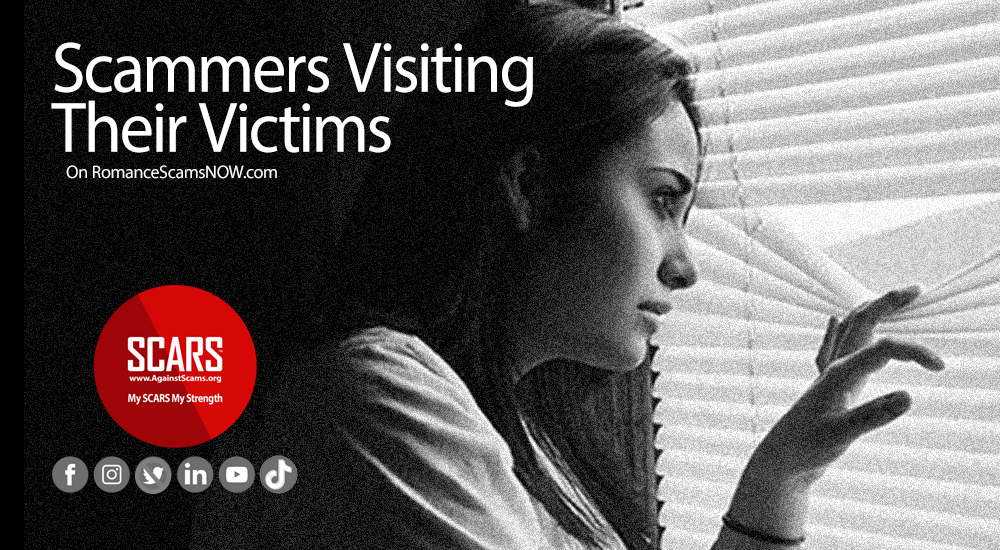


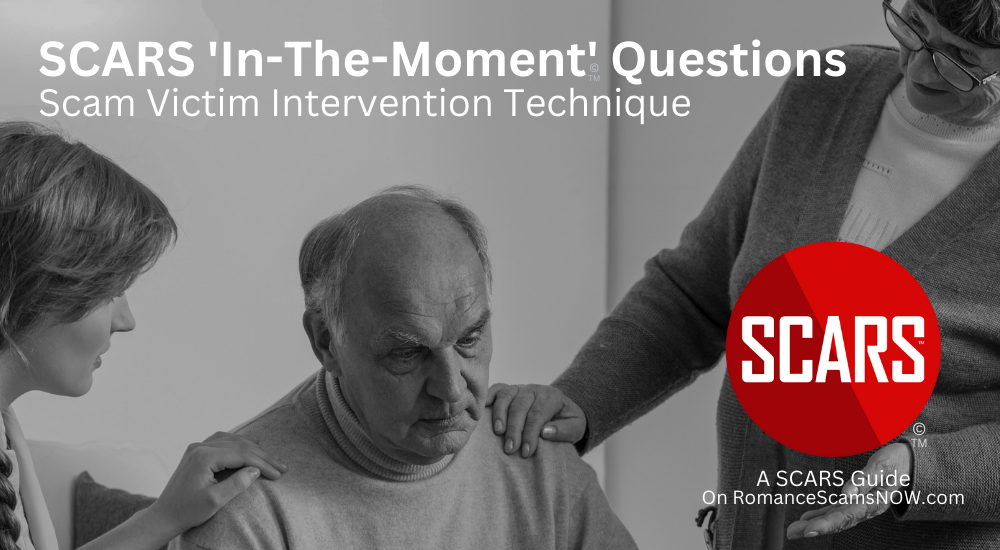
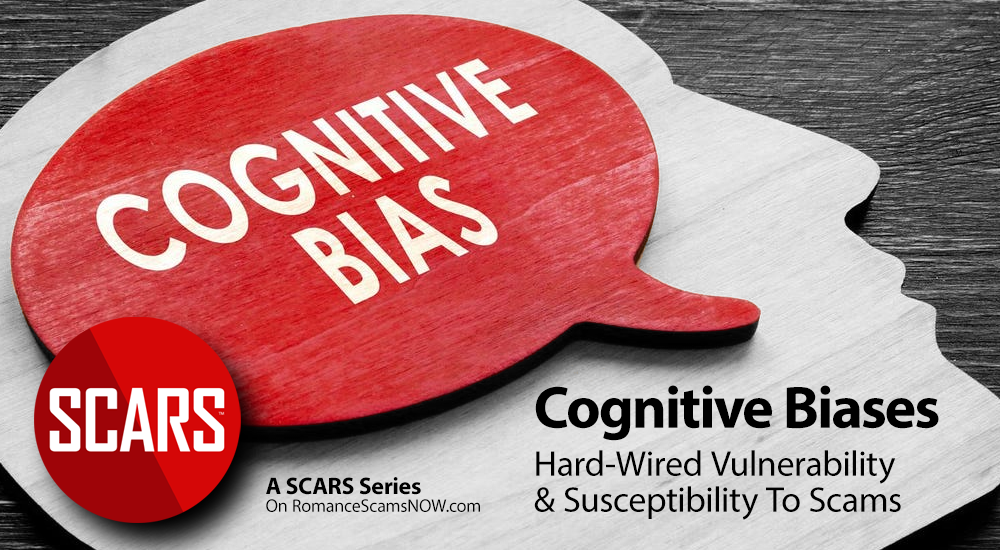

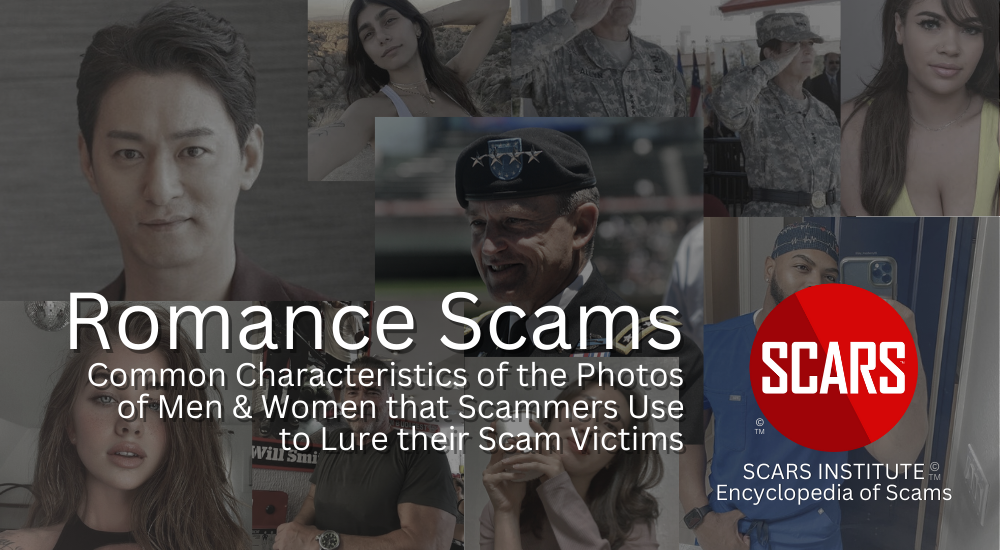
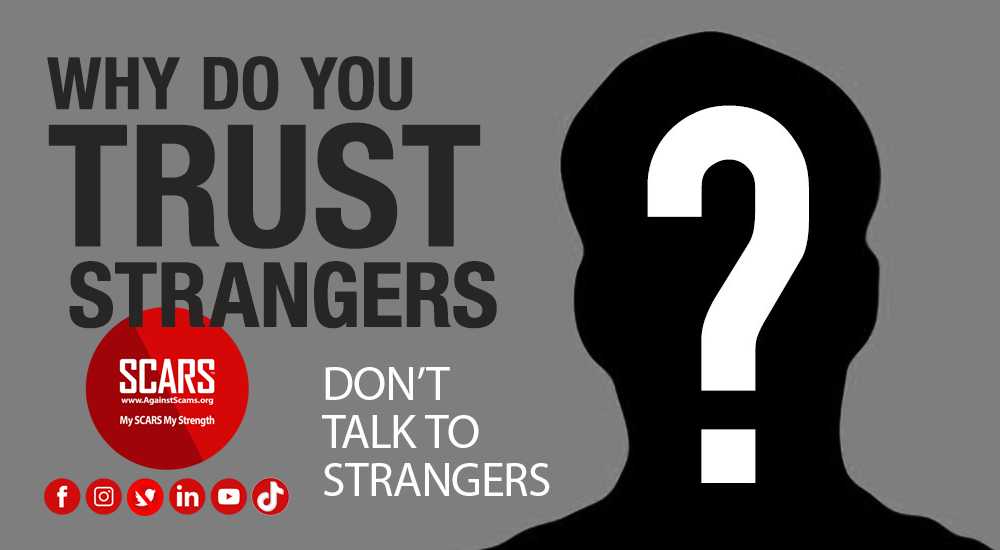












I was completely blindsided by my scam. I believed, for months, that I was helping someone out and that my money would be returned to me. I was ignorant and trusting, and extremely vulnerable. I knew nothing about this type of scam and I’m sure I was easily groomed and manipulated, once I was targeted.
As I started to realize that I was a victim of fraud, the cognitive dissonance was immense. I was devastated.
Then hindsight kicked in and the red flags waved at me from many angles.
I lookback on my fraud and realize that I was very much operating on the fact that I could end it at any time and that I was aware of what was happening. Hah! I believed that because I was highly trained in spotting fraud/scams that I would recognize what was happening in an instant – I did not. I was immediately swept up int the “romance” and wanting only those love emotions, that I paid no heed to the situation. I now only want to learn from the situation and I take more time to make a decisions. Quick decisions are no longer a part of me. I was wrong in thinking that the second time around was different. Instead it apparently may have been continuation of the first contact that I thought I had successfully evaded. Or it could have been a separate attack. So wrong!
I was previously exposed to other scams and was able to recognize it in time to prevent it from happening. The romance scam I recently experienced was expertly and skillfully carried out. I didn’t see it coming until the end when highsight bias took over.
I definitely had hindsight bias after my scam. Bur I’m also a big beliver in personal responsibility so I naturally started looking back on the scam to see what I could have done differently. Knowing the conclusion a lot of things seem like red flags even though they didn’t at the time. Also had I had the psychological knowledge I have now from SCARS I think I will better recognize the signs now. Just wish I knew the signs earlier.
I did know about pig butcher scams that I became a victim of. I thought my situation was different. I was wrong.
Thanks so much for the publication of this article. For at least two months after my last scam ended, I was struggling to make decisions on everything . And even now, I take my sweet time to decide on what to do, even in small things.
I am trying to be aware of consequences and complications. I ask people that could potentially help me make a good decisions when it comes to legal or financial matters. I feel more confident on talking about what happened to me more and more, as times passes by. Acceptance of what happened and the aftermath financial situation has been the clue, in my opinion.